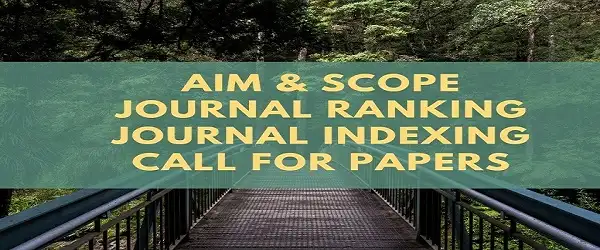Lecture Notes In Earth System Sciences impact factor, indexing, ranking (2024)

Aim and Scope
The Lecture Notes In Earth System Sciences is a research journal published by the Springer International Publishing AG. The P-ISSN of this journal is 2193858X.
Also, please check the following important details about lecture notes in earth system sciences: Publisher, ISSN, Ranking, Indexing, Impact Factor (if applicable), Publication fee (APC), Review Time, and Acceptance Rate.
According to Clarivate's JCR, journals indexed in SCIE/SSCI have an impact factor.
Important Metrics
| Journal Title: | Lecture Notes in Earth System Sciences |
| Publisher: | Springer International Publishing AG |
| P-ISSN: | 2193858X |
| Open Access: | |
| Status: | Active |
| Scopus Coverage: | 2020-ongoing, 2016-2018, 2012-2014 |
lecture notes in earth system sciences Indexing
The lecture notes in earth system sciences is indexed in:
An indexed journal means that the journal has gone through and passed a review process of certain requirements done by a journal indexer.
The Web of Science Core Collection includes the Science Citation Index Expanded (SCIE), Social Sciences Citation Index (SSCI), Arts & Humanities Citation Index (AHCI), and Emerging Sources Citation Index (ESCI).
Call for Papers
Visit to the official website of the journal/ conference to check the details about call for papers.
How to publish in Lecture Notes In Earth System Sciences?
If your research is related to the scope of the journal, then visit the official website of lecture notes in earth system sciences and send your manuscript.
Tips for publishing in Lecture Notes In Earth System Sciences:
- Selection of research problem.
- Presenting a solution.
- Designing the paper.
- Make your manuscript publication worthy.
- Write an effective results section.
- Mind your references.
Acceptance Rate
Acceptance rate is the ratio of the number of articles submitted to the number of articles published. Researchers can check the acceptance rate on the journal website. Alternatively, they can contact the editor of the journal.Journal Publication Time
The publication time may vary depending on factors such as the complexity of the research and the current workload of the editorial team. Journals typically request reviewers to submit their reviews within 3-4 weeks. However, some journals lack mechanisms to enforce this deadline, making it difficult to predict the duration of the peer review process.
The review time also depends upon the quality of the research paper.
Final Summary
- It is published by Springer International Publishing AG.
- The journal is indexed in , Scopus.
Sources: lecture notes in earth system sciences